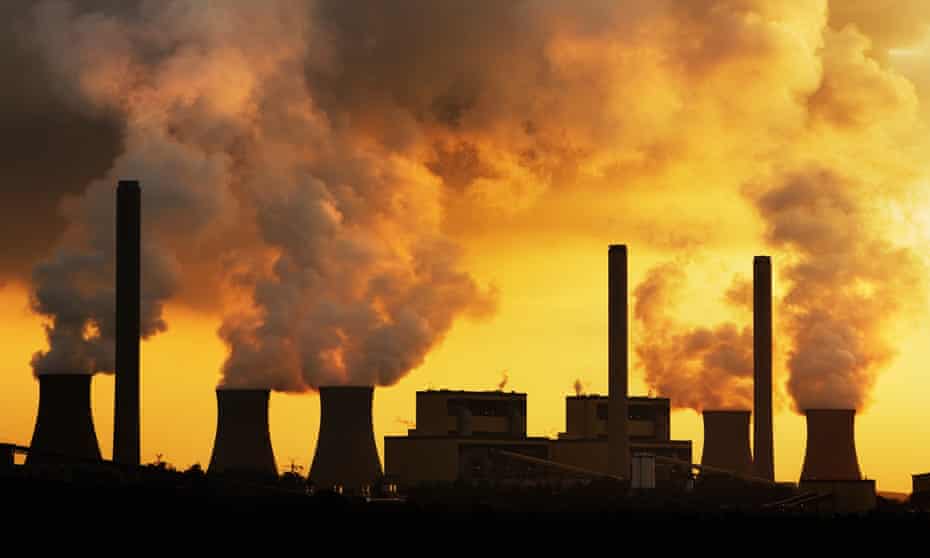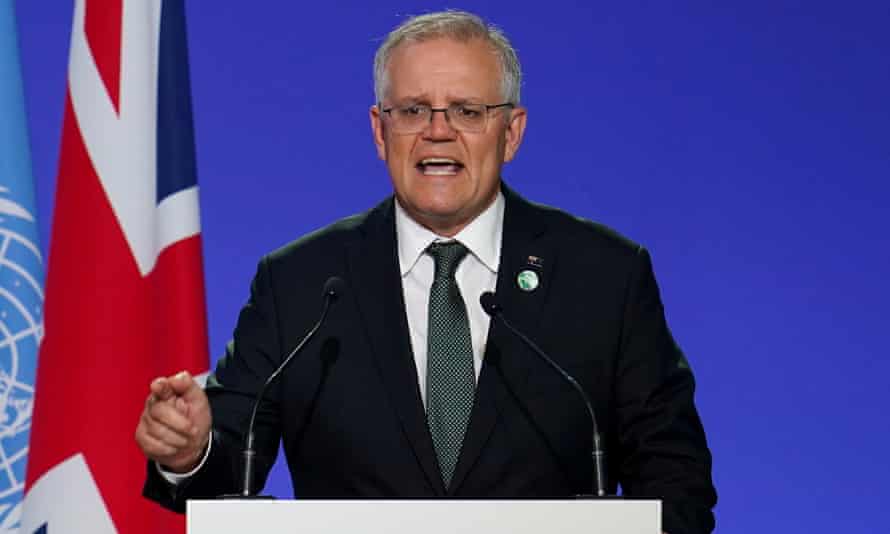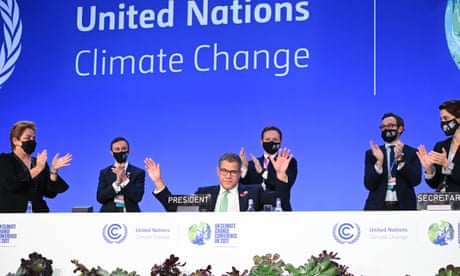Extract from The Guardian
Matt Kean says Glasgow climate summit has ‘accelerated where the market was already going’

In light of the weekend’s conclusion of the Cop26 climate summit in Glasgow, those challenges will get more difficult, Kean has now predicted.
“Glasgow just accelerated where the market was already going,” he said. “The fossil fuel industry is going to find it harder to get insurance, raise capital or refinance their operations.”
Those sentiments, from the treasurer of the state home to most of Australia’s thermal coal exporters, were echoed in post-Glasgow comments by Australian-based analysts tracking investor and legal trends.
Among Glasgow’s achievements was the decision to press member states to return by Cop27 in Egypt next year – rather than wait another five years – to raise targets for 2030 emissions cuts. Settling rules at Glasgow for international carbon markets under article six of the Paris climate accord may also benefit Australia as both a buyer and seller of carbon credits, the analysts said.
Other shifts evident at Glasgow included the growing global rivalry for leadership in the race to make hydrogen from renewable energy to supplant oil and gas.
“I think there’s a warning there for Australia,” Reed said. “We can’t assume that just because we have pretty high quality renewable resource centres … that we’re going to automatically be an energy superpower.”
Emma Herd, a climate change partner at consultancy EY, said the media naturally focused on the final hours “of drama and theatre” of settling the Glasgow agreement’s text, but much had already been achieved in the preceding fortnight.
Progress included creating the International Sustainability Standards Board to require high quality, transparent, reliable and comparable reporting by companies of their carbon and other environmental reporting. “That’s also going to be a big part of accelerating business action,” Herd said.
That Covid did not derail Glasgow was itself positive. An EY report out last week found the pandemic actually increased their focus on climate change, she said.
‘The market has decided’
One chief investment officer told Herd that “when everything is uncertain, you look at the long-term trends because they become a safer bet”.
“And the market has decided that one of those key long-term trends is decarbonisation.”
Erwin Jackson, director of policy at the Investor Group on Climate Change, said Cops “set norms”. These now include discussing a warming limit goal of 1.5C rather than 2C, raising 2030 ambitions, and the end of fossil fuels, even if Glasgow’s official text settled on “phasing down” rather than “phasing out” coal.

Prime minister Scott Morrison speaks at the UN Cop26 in Glasgow. Photograph: Reuters
Jackson said investors were already demanding annual rates of return of 40% for investments in coal and 20% for oil, compared with just 10% for solar and wind ventures, because of the greater risk associated with fossil fuels.
“[It’s] probably better than I would have thought we would have got two years ago,” Jackson said. But the Morrison government’s refusal to change Australia’s target of cutting 2005 level emissions by 26% to 28% was an outlying performance that sent a jarring note.
“The whole thing together gives investors confidence in making long-term investments,” Jackson said. “The risk for Australia is because we haven’t updated the 2030 target, you’re undermining their confidence.”
Martijn Wilder, a founding partner of the climate change advisory firm Pollination, said legal action against fossil fuel companies was already gathering pace, and Glasgow would only add to that.

Corporations signing net-zero targets – including many at Glasgow – should brace for legal action if they didn’t follow through. “In the last six months the greenwashing issue has become enormous,” he said.
The Carbon Markets Institute welcomed the Cop26 result, saying it “delivered a platform for greater international cooperation and established a governance framework for international emissions trading capable of high integrity”.
“Booming voluntary global and Australian carbon markets will now need to appropriately align with these rules to ensure verified emission reductions and other social and environmental benefits are achieved in industrial decarbonisation and natural climate solutions,” the institute said.
However, Malte Meinshausen, an associate professor at the University of Melbourne’s Climate and Energy College and a former Cop negotiator, said he was “very much sceptical” about the market agreement, not least because it allowed the use of credits generated under the Kyoto protocol.
“I think that leaves the door open to all the domestic targets only being watered down, so the real action on the ground might actually suffer,” he said. “Cross boundary trading schemes in the past have always been shown to undermine the integrity of the system.”
In sum, though, the Glasgow Cop provided “moderately suitable steps forward but with many more steps in the marathon still to do”, Meinshausen said.
Separately, a study has found the cost to the Australian economy of reaching net-zero by 2050 has fallen 80% in just eight years, mostly thanks to the plunging price of renewable energy.
The modelling from Victoria University’s Centre for Policy Studies compared business as usual with the transition to zero path and found the difference was barely discernible.
“Cutting greenhouse gas emissions is like buying an insurance policy: we incur a cost (a loss in GDP) to reduce a risk (catastrophic climate change),” the report by Prof Philip Adams said. “However, if it costs only 1% of income, as estimated in our modelling, then taking the insurance policy is a very good option.”
No comments:
Post a Comment